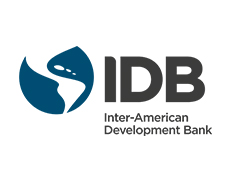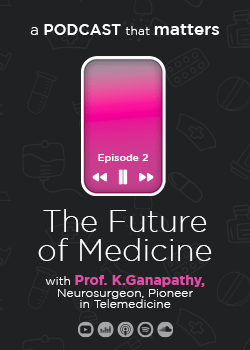
Digital Tokens for Diversity: Accelerating biodiversity conservation and regeneration in LAC by harnessing digital tokens
Details
Description
UPDATE: November 8, 2022
The Digital Tokens for Biodiversity Challenge is now closed. A preliminary list of applicants are going through the final stage of due diligence of integrity checks and eligibility criteria. A total of 86 proposals were received from more than 20 countries and it has been a challenge in itself to evaluate and choose between them all due to the average very high quality and technical standard of the proposals. We hope to conduct the final due diligence and announce the final selected applicants in December of 2022.
Accelerating biodiversity conservation and regeneration in LAC by harnessing digital tokens
The Inter-American Development Bank (IDB), through its innovation laboratory, IDB Lab, in collaboration with the Natural Capital Lab and the support of LACChain, seeks to assist innovative solutions in Latin America and the Caribbean that harness the power of digital tokens as tools to advance biodiversity conservation and climate action. Apart from helping solve environmental challenges, these applications must have a positive impact on poor and vulnerable populations. Moreover, it must be implemented in one or more of IDB’s 26 beneficiary countries.
THE PROPOSED SOLUTIONS MUST:
Promote biodiversity conservation and/or regeneration, considering the meaningful participation of local communities.
Explore and harness the potential of digital tokens and be innovative in nature by:
Topic track 1: presenting a new solution or add an innovation component to an existing model; or
Topic track 2: presenting a strategy/ action plan to promote awareness, ecosystem building and developing inclusive and accountable governance frameworks.
Promote the social and economic inclusion of poor and vulnerable communities with key indicators to measure results.
Contemplate a path for scalability or replication, as well as financial sustainability.
TARGET COUNTRIES
Argentina, Bahamas, Barbados, Belize, Bolivia, Brazil, Chile, Colombia, Costa Rica, Dominican Republic, Ecuador, El Salvador, Guatemala, Guyana, Haiti, Honduras, Jamaica, Mexico, Nicaragua, Panama, Paraguay, Peru, Suriname, Trinidad and Tobago, Uruguay, and Venezuela.
TYPES OF SOLUTIONS
The following are some non-limiting examples of specific solutions to challenges that may be proposed by applicants:
For Track 1: Can digital tokens:
assist in creating more effective, decentralized and inclusive funding mechanisms? If so, how?
become effective tools to foster more agile, participatory, and transparent markets related to biodiversity conservation/regeneration? If so, how?
biodiversity conservation/regeneration? If so, how?
allow for better data and information flows among parties that are more transparent, traceable, secure and agile? If so, how?
add value in the operalization of biodiversity conservation/regeneration global frameworks?
be harnessed to implement, monitor and report nature-based solutions in a transparent and traceable way? If so, how?
For Track 2: What is the best strategy to create awareness about the opportunities and create/strengthen intersectorial ecosystems in this field? What inclusive and accountable governance frameworks should be set in place?
AWARDS
Financing: IDB Lab may consider the Applicants whose proposals are selected to receive financing to implement the proposed business model or action plan in one of the 26 target countries.
IDB Lab Innovators Network: Selected applicants will be included among IDB Lab's network of global innovators and may have opportunities to participate in networking events to showcase their solutions.
Who can present applications?
Applicants from any of the 48 members countries of the IDB Group can participate, including startups with “ready-to-implement” solutions, small and medium-sized enterprises (SMEs), corporations, NGOs, and others with demonstrated expertise.
If your organization is legally registered in one of these 26 target countries where the project will be implemented, you can apply to the Challenge.
If your organization is legally registered in one of the 48 IDB member countries, other than one of the 26 target countries where the project will be implemented, you may apply only in partnership with an organization registered and located in one of the 26 target countries where the project will be implemented.
How to apply:
1. Complete online application:
Submit application through the online platform on or before August 12, 2022 (midnight, Eastern Time, USA).
Applications will be selected if they fully comply with the evaluation criteria and requirements describe in the Guidelines.
2. Upload documents:
Written evidence of counterpart resources.
Written proof of legal constitution/incorporation and bylaws.
Copies of Applicant´s latest annual financial statements prepared by an external auditing firm (or follow required practice in Applicant’s country).
Evaluation Criteria:
Applications will be evaluated according to the criteria indicated below. Please read the guidelines for detailed information:
For topic track 1:
Level of innovation of the business model/Use of disruptive technologies or processes. (15%)
Degree of environmental impact; and social and economic impact, targeting excluded groups and communities or low-income populations. Promotion of gender equity will be positively considered. (20%)
Scalability or replication potential. (10%)
Financial sustainability and/or repayment capacity for loan applicants. (10%)
Quality and feasibility of the technical proposal. (15%)
Technical capacity of Applicant and strategic partners. (10%)
Appropriate use of technology, viability of execution and risk management. (20%)
For topic track 2:
Level of innovative approach for the creation of a(an) ecosystem(s) that is(are) capable of raising awareness about sustainable business opportunities in the region. (20%)
Degree of inclusion of different sectors, key regional and local actors and vulnerable groups including indigenous populations, if applicable. Promotion of gender equity will be positively considered. (15%)
Scalability or replication potential. (10%)
Growth potential or sustainability potential for the period following the funding of IDB Lab. (10%)
Quality and feasibility of the proposal. (20%)
Institutional capacity. (15%)
Alignment to public policies on climate and biodiversity global goals; and alignment to existing best practices of blockchain protocols that promote privacy, security and trustworthiness, among others. (10%)
Selection Process:
Phase I
After completing the application on the online platform, an IDB Group technical team will review, analyze, and pre-select the applications.
Phase II
Due diligence visits or interviews will be conducted to analyze the viability of the model of the pre-selected applications. Subject to the outcome, pre-selected applications will proceed to Phase III.
Phase III
IDB Lab will select applications according to the evaluation criteria describe in detail in the Guidelines. Selected applications will be announced as per timeline established. Once the best way to implement the model has been assessed, IDB Lab will provide support to the selected Applicant(s) to initiate the design of the model (which includes developing a project plan and other documents necessary to request official internal IDB Lab approval). This process may last up to six months, depending on the maturity of the model and the implementing capacity of the selected Applicants.
*Note that final approval is subject to internal IDB/IDB Lab procedures with the understanding that for a project to be selected to receive financing, it must have been approved by all those directly involved in IDB/IDB Lab’s approval process. Likewise, a legal agreement must be signed which sets forth how the financing and the counterpart resources will be used to implement the model.
For questions please email:
IDBLab_tokenization@iadb.org



